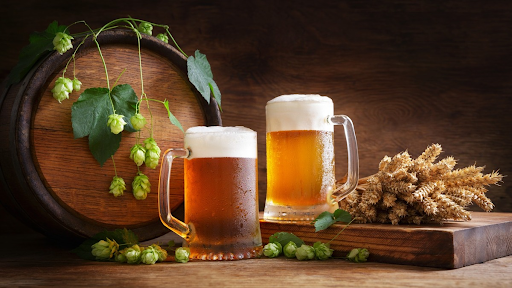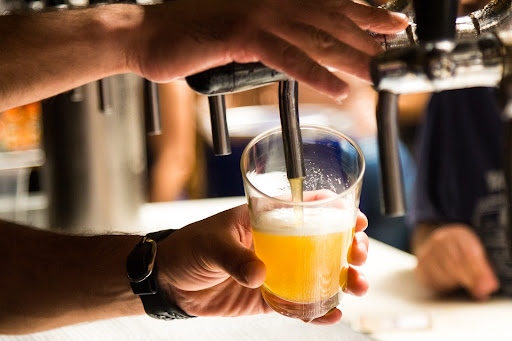Crafting Quality: A Guide to Gluten-Free Beer Ingredients and Brewing Methods
30 Mar 2024
Craft beer enthusiasts are well aware of the diverse range of flavours and styles available in the world of brewing. However, for those with gluten sensitivities or celiac disease, navigating this landscape can be challenging. Fortunately, the rise of gluten-free beer has opened up new possibilities, offering delicious alternatives crafted with care and quality. In this guide, we'll delve into the ingredients and brewing methods behind gluten-free beer, providing insights into what makes these brews both distinctive and enjoyable.
Alternative Grains:
Traditional beer is typically brewed using barley, wheat, or rye, all of which contain gluten. In contrast, gluten-free beers utilise alternative grains that are naturally gluten-free. Common substitutes include millet, sorghum, rice, and buckwheat. Each of these grains brings its own unique flavour profile to the beer, contributing to the diversity of gluten-free options available to beer lovers.
Enzyme Treatments:
Another method employed in gluten-free brewing involves the use of enzyme treatments to break down gluten proteins into smaller, harmless fragments. Enzymes such as Brewer's Clarex or Clarity Ferm can be added during the brewing process to reduce gluten content to below the threshold considered safe for those with gluten sensitivities. While these treatments are effective at lowering gluten levels, it's essential to note that they may not be suitable for individuals with severe allergies or celiac disease.
Innovative Brewing Processes:
Crafting gluten-free beer requires careful attention to brewing processes to ensure the final product meets quality standards. Brewers may employ techniques such as separate equipment, dedicated facilities, or rigorous cleaning protocols to prevent cross-contamination with gluten-containing grains. Additionally, the fermentation process plays a crucial role in developing the flavours and aromas of gluten-free beer, with brewers experimenting with different yeast strains and fermentation temperatures to achieve desired results.
Quality Control and Testing:
Maintaining quality and consistency is paramount in gluten-free brewing. Brewers invest in quality control measures and regular testing to verify gluten levels and ensure compliance with regulatory standards. Independent laboratory testing is often conducted to certify gluten-free claims, providing consumers with confidence in the safety and authenticity of the beer they're enjoying.
Embracing Innovation:
As the demand for gluten-free beer continues to grow, breweries are embracing innovation and pushing the boundaries of what's possible in gluten-free brewing. From experimental ingredients to innovative techniques, the gluten-free beer market is evolving rapidly, offering an exciting array of options for beer lovers to explore and enjoy.
In conclusion, crafting quality gluten-free beer requires a combination of alternative grains, enzyme treatments, innovative brewing processes, and rigorous quality control measures.
By understanding the ingredients and methods behind gluten-free brewing, beer lovers can make informed choices and savour the diverse flavours and styles available in the world of gluten-free beer.
Cheers to quality craftsmanship and delicious brews!
So what are you waiting for?
Buy independent. Support locals. And taste the benefits when fresh beer shows up at your front door.














